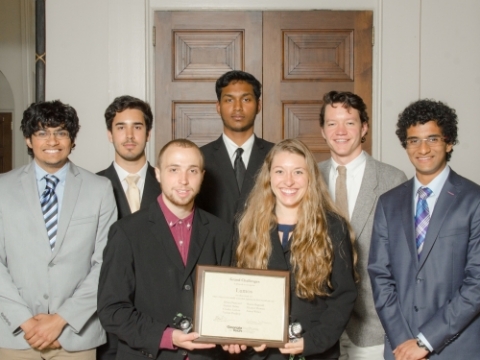Approximately a quarter of the world’s population lacks a reliable source of electricity. More specifically, an estimated 79% of the Third World population lacks electrical power. Team Lumos is choosing to focus specifically on Liberia, where 3-5% of the population has access to electricity. One of the more harmful implications of a lack of electrical power is an apparent scarcity of artificial light. Artificial light is a necessity for any society to function and grow. Many regions of Liberia are heavily reliant on the use of kerosene and spend from 10-50% of their weekly income on it. Not only are they expensive, but kerosene lamps also pollute the room with carbon dioxide, nitrogen dioxide and sulphur dioxide. These toxins cause diseases such as pneumonia, bronchitis and lung cancer and are especially dangerous to children, the elderly, and pregnant women.
The team’s proposed solution is to introduce a very cheap and simple still that allows Liberians to make their own fuel for these lamps. They would use the waste product from local sugar cane refineries, or even harvest wild sugar cane, which is native to Liberia to distill bio-ethanol, which would then be burnable in the lamps they already possess. This would solve two problems simultaneously; ethanol doesn't emit any toxins when burned so it's a clean source of fuel, and secondly, Lumos hopes that Liberians could produce this bio-ethanol at a much lower cost than buying kerosene, creating a larger incentive to adopt this new technology.


